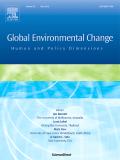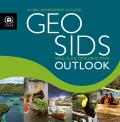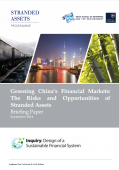Rapidly growing emerging economies, such as Brazil, China, India and Indonesia have joined the ranks of major industrialized countries as significant emitters of greenhouse (GHG). Their rapid economic growth has, however, brought about considerable environmental degradation, health costs, material damage, and a decrease in agriculture productivity. The notion of “green growth” has been proposed as a way out. This paper examines the case of Indonesia and evaluates its search for green growth through an approach that combines a so-called Energy Mix Policy and a REDD+ program.

The rhetorical zeal for green enterprise as a global fix for the tripartite challenges of economic recession, environmental degradation and social inequality is increasingly visible in state and non-state pronouncements around the globe under the banner of ‘The Green Economy’. In particular, many policy-facing statements call for transitions leading to a transformation in development practices. Yet there is little detail either in policy or research regarding the types of transitions needed and how they are to be initiated, nor agreement about what a transformed economy might look like. Despite this, there are emergent activities within the cleantech arena which are being heralded as actually existing examples of green economy activities. One means through which these activities are seeking to exert influence over development trajectories is by clustering both at the subnational and transnational level. While diverse in formation, many of these clusters are hybridised, involving actors from public, private and civil society sectors.

This report examines the diverse realities of Small Island Developing States (SIDS) through an integrated approach. While SIDS have bountiful supplies of renewable resources and unique cultural assets, they often face daunting challenges resulting from isolation and remoteness coupled with climate change, natural disasters, and out-migration. Furthermore, global financial shocks and increasing fuel and food prices are threatening core economic sectors such as tourism.
Built on combinations of realistic outlooks, this report develops an ensemble of four island-centric futures: the blue-green economy; technology leapfrogging; priority to island community and culture; and reconnecting with nature, to help individual states consider policy choices that best respond to their needs. This report shows that there is much that SIDS can do proactively to anticipate environmental problems and their economic consequences or even avoid them through innovative planning and action.

Green growth, or environmentally sustainable economic growth, is imperative in light of current environmental crises and resource depletion. Green indicators and statistics can measure environmentally sustainable development; they thus enable evaluating green growth and support its integration into policy. As such, this study uses an OECD framework to select a set of 12 indicators, designed for cross-country comparisons of green growth strategies. These indicators are assessed for 30 countries, including South Korea. Current data for each international indicator is compared to the 10th percentile of OECD countries and evaluated on a scale of 1-10. South Korea ranked 17th among the 30: its natural capital and quality of life indexes are relatively high, but its economic activity scores (production, consumption, and trade) are relatively low. These findings suggest that production and consumption processes must be made more environmentally and economically sustainable. Given that South Korea's green growth strategy currently emphasizes economic value, the country is moving in the right direction and our analysis projects that economic activity scores will rise in the future.
